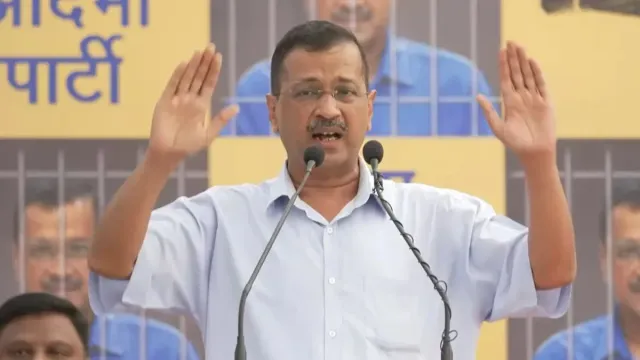- By Abhishek Sheoran
- Tue, 30 Jul 2024 02:07 PM (IST)
- Source:JND
During the bail hearing of Chief Minister Arvind Kejriwal in the corruption case related to the excise scam, a heated exchange took place between the CBI and the defence in the Delhi High Court. The CBI strongly opposed the bail plea, calling Kejriwal the mastermind behind the scam. On the other hand, Kejriwal termed the agency's claims baseless and labelled his arrest in the case as an "insurance arrest."
A heated debate was witnessed between the CBI and the defence during the bail hearing of Chief Minister Arvind Kejriwal in the corruption case linked with the Delhi Excise Policy case. The CBI, during the hearing in Delhi High Court, strongly opposed Kejriwal’s bail plea, calling him the mastermind behind the alleged scam, as per Jagran.com.
Contrary to this, Kejriwal termed the agency's claims baseless.
After hearing lengthy arguments from both sides, the bench of Justice Neena Bansal Krishna reserved its decision on Monday. Special Public Prosecutor DP Singh, appearing on behalf of the CBI, argued that the evidence that has emerged over the past month will demonstrate that these are not mere allegations but that Kejriwal was indeed the ‘mastermind’ behind the entire excise scam.
The CBI stated that co-accused Vijay Nair was part of the secretariat and was the media in-charge for AAP. Nair used to meet everyone, and Magunta Reddy had met him in his office. Moreover, BRS leader K Kavitha had called Nair to arrange a meeting. Nair had allegedly traveled to Hyderabad to meet Kavitha.
The federal probe agency claimed all the accusations laid out against Kejriwal were supported by evidence. The agency argued that Kejriwal was the head of the cabinet and had signed the excise policy. Kejriwal had also allegedly expedited the policy during the second lockdown of the COVID-19 pandemic, sending it in a single day. The CBI questioned why this was done at that time. It also noted that the South Group had arrived in Delhi via a chartered plane and monitored the preparation of the policy here.
The CBI stated that the signatures were collected in a single day and the policy was then presented and passed before a group of ministers. The agency argued that IAS officer C Arvind, who was working under the then-Deputy Chief Minister Manish Sisodia, had stated that Vijay Nair from the South Group had brought a copy of the policy, which was to be entered into the computer. Kejriwal was present during this process. The CBI argued that this reflects the direct involvement of the Chief Minister.
In response to the question of not recovering the bribe amount in the case, the CBI argued that once the currency is moved, tracking it becomes very difficult. However, the agency has traced that Rs 44 crore went to Goa for the Assembly election. The agency claimed it had evidence that Rs 90 lakh was to be given to each candidate. As per the probe agency, Kejriwal also told candidates, "Don't worry about the money, just focus on fighting the election."
Opposing the bail petition, the CBI argued that whether the arrest was valid or not is initially tested in the trial court. This then forms the basis for the bail. The CBI contended that the case is not suitable for investigation if one petition challenges the arrest while another seeks bail. The two processes cannot run simultaneously.

